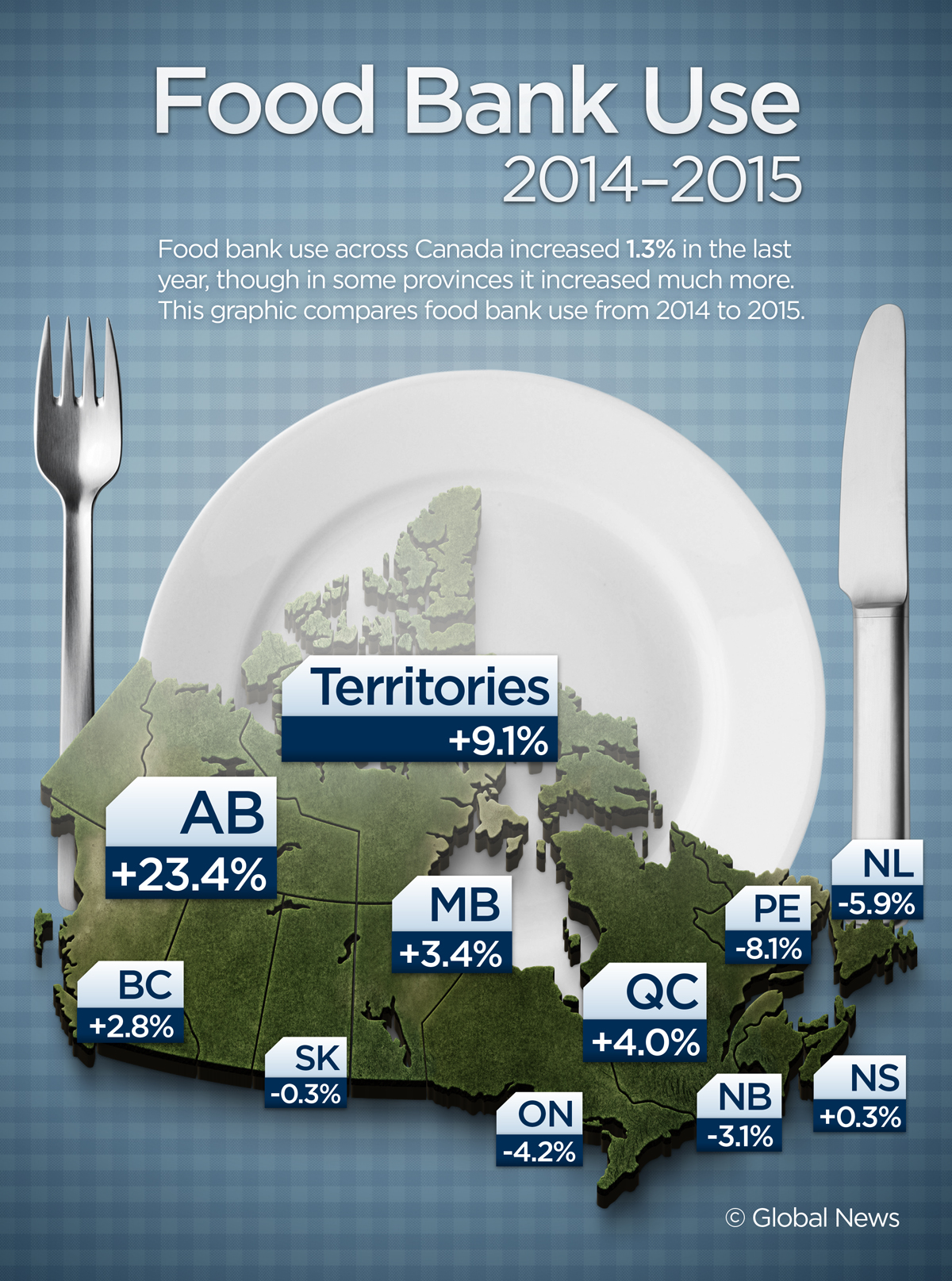The oilpatch slowdown is hitting Alberta’s food banks: 67,443 hungry people walked through their doors in March, 2015 – 23.4 per cent more than the March before.

The increase was sharpest in Alberta but was seen across the country, according to a new report from Food Banks Canada.
852,137 Canadians visited a food bank in March 2015. That’s 1.3 per cent higher than March 2014.
That’s just the tip of the iceberg, says Alberta Food Banks executive director Stephanie Rigby.
“The numbers from March are startling. But what has been happening after that is significantly worse,” she said.
The number of visitors has continued to climb over the course of the year, obliging her association to issue a call for help over the summer as its members’ shelves went bare.
The Wood Buffalo food bank in Fort McMurray was particularly hard-hit by the economic downturn.
This October, 70 per cent more people visited the food bank compared to the year before, according to the association’s executive director, Arianna Johnson.
“We’ve had a lot of layoffs up here,” she said.
“I can tell you that since July, we’ve had 15 people who have gone from major individual contributors – so they annually donated over $500 – to clients.”
“People can’t afford to leave,” she said.
People have been laid off, overtime has been cut back, but people still have mortgages to pay.
And with the economy dragging they can’t sell their houses, either.
In response to the increased demand, Wood Buffalo food bank has added new fundraising events, sought help from Alberta food banks and made an intensified plea to the community.
“They’re very responsive,” Johnson said.
“We take care of ourselves. We take care of each other, and when the food bank says ‘Our increase is this and we’re running out of this,’ all of a sudden our donation bins that are in grocery stores have the things that we’re out of or have the things that we said we really need the most that week.”
Community donations are great, Rigby said, but not enough to fix the problem.
“That’s really just a stopgap.”
“Constantly asking for more donations of food and money so that we can operate is just not realistic. …
“We’ve really got to start collectively addressing the root causes of what is causing this and why so many people have to turn to food banks and what we can do in partnership with our federal and provincial governments to start to stem that flow.”
Rigby thinks all levels of government, as well as food banks, need to figure out ways to deal with a volatile economy so thousands of people don’t end up visiting food banks every time the price of oil drops.
Recessionary hangover
Officially the 2008-09 financial crisis is long gone. But Canada’s food bank use remains 26 per cent higher than in 2008, pre-recession.
“It’s stubbornly high. Food bank use hasn’t dropped below 700,000 people a month for the last 15 years,” said Food Banks executive director Canada Katharine Schmidt.
She thinks it might have to do with the job market. Although there are lots of jobs being created, she said, they’re often poorer quality.
“We’re seeing more and more people who are juggling two or three part-time jobs and at the end of the day, there still isn’t enough there to try to raise a family or support themselves,” she said.
Her organization is calling for investments in job training, affordable housing, even a minimum income program to decrease Canadians’ reliance on food banks.
“It’s something that we hope will continue to be discussed because we believe that at the end of the day, the cost of poverty is so high that if we took an approach of having a minimum income, it would cost less than the cost of poverty to be able to do that,” she said.
She’s optimistic that governments will be able to discuss ways to resolve the issue.
“We live in such a prosperous country. It’s unacceptable that so many people are going to bed hungry.”


Comments